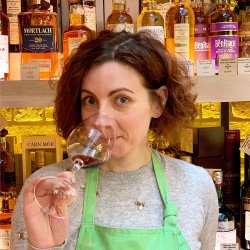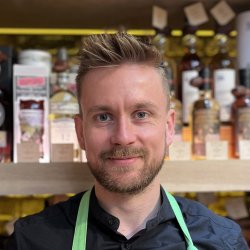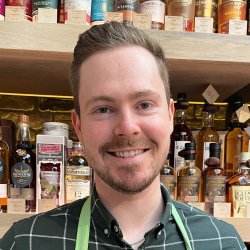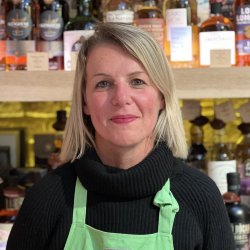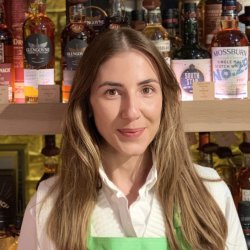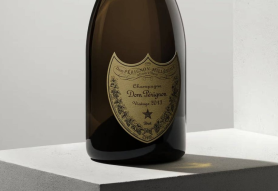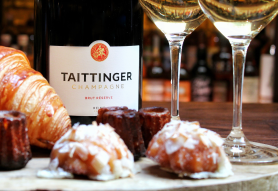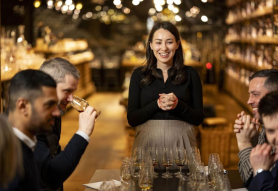Hedonism Meets… William Lowe MW
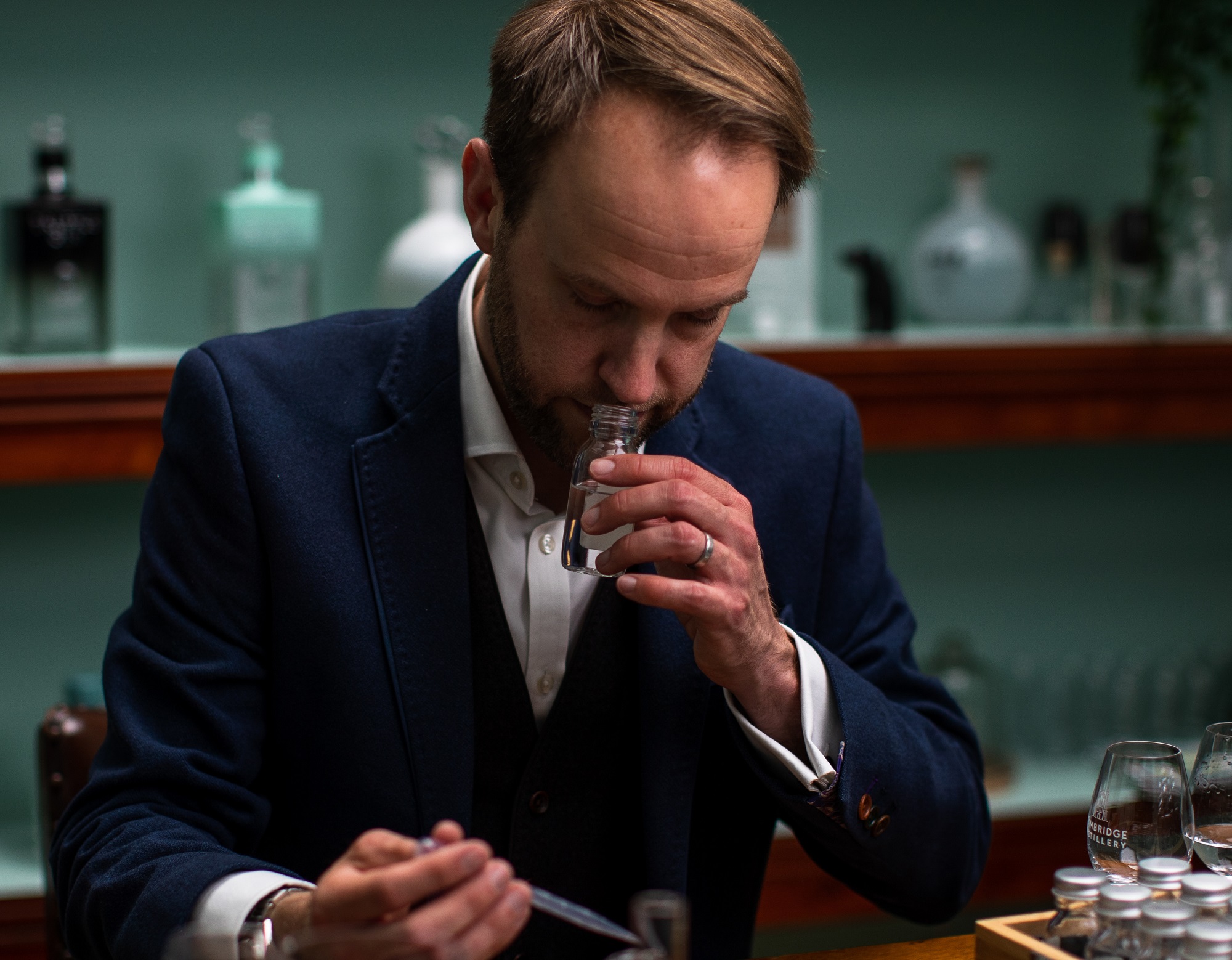
It was a real treat to interview Cambridge Distillery’s Master Distiller William Lowe, who adding to his many accolades, became the first ever Master Distiller to achieve the highly coveted title of Master of Wine in 2020. Co-founder (together with his wife and business partner, Lucy) of Cambridge Distillery in 2012, Lowe creates award-winning gins in Grantchester, Cambridgeshire. So pull up a chair, pour yourself that G&T and read on.
Here at Hedonism, the Cambridge Distillery gins are some of our best-sellers. Can you tell us a little about the different gins in your range, such as the Seasonal Gin, Anty Gin, and the Truffle Gin?
Very glad to hear it! The first thing to mention, I think, is that at Cambridge Distillery we don’t simply make different flavoured expressions. Instead, we focus our efforts on tackling projects which have either never been done before, or which we believe can be taken to a higher quality level. The gins you mention are great examples of this. For example, our Seasonal Gins are the first seasonal gins in the world. Our unique production protocols (including our trademarked novo-dimensional distillation matrix) allow us to capture the essence of a time and place in a way never before achieved. We use locally grown and foraged botanicals, effectively distilling the season (and locale) from which they came. Anty Gin was the world’s first insect based gin: capturing the citrus-like flavour of formic acid from red wood ants (Formica Rufa) provided a citrus note quite unlike any other commercially available alternative. Truffle Gin, in turn, is the world’s first digestif gin (I like to think of it as a whisky drinker’s gin) – created specifically for sipping after dinner. The white truffle from Alba we use to create it is out of this world.
How do you recommend serving your gins – neat, with tonic, garnishes?
That always depends on which gin, who’s drinking it, and on what occasion. The first thing I’d say it that we’re very proud of every drop we put into every bottle. It’s my opinion that if the gin doesn’t taste great straight out of the bottle, it probably isn’t that great at all. As such, I personally tend to enjoy most of our gins neat. Certainly, things like Truffle Gin and Watenshi lend themselves to this type of serve. I’m also a bit of a purist, so a dry martini (which gives the gin no corner to hide in) is always something I’d recommend. Of course I acknowledge that most people enjoy their gins with tonic water. My only advice there would be to avoid artificial flavourings and keep an eye on the sugar level – avoid anything over 90g/l as they quickly taste confected and synthetic.
How have you managed the incredible feat of becoming not only a Master Distiller but also a Master of Wine?
By persevering, would be the short answer. The Master of Wine is one of the most respected titles in the drinks world, and rightly so. It’s incredibly challenging, but equally rewarding. It’s a humbling process – it is completely inevitable that you will have all of your weakness made very clear not only to yourself but also your contemporaries. One must be able to take this feedback and use it to direct their study. It was clear to me both during and after the process that my studies were improving my tasting ability. It has made me a more considered and skilled producer, better able to anticipate the needs and requirements of our clientele. Seeing that ability improve was all the motivation I needed to keep going.

Founded in 2012, why did you decide to set up in Grantchester, Cambridgeshire? How did Cambridge Distillery come to be?
The distillery was created from a couple of very simple observations:
Firstly, most gins are simply ‘good’ (there are some very good examples as well as, sadly, some which dip well below an acceptable threshold). It struck me that nobody out there was trying to make the best gin possible. Rather, their aim was to make the best gin they could within the commercial context of a shelf price which had been pre-determined. We reasoned that people should have the option to spend more to obtain higher quality if they so choose, so we set about examining every stage of the production process making the best decisions rather than the cheapest or most efficient decision at every point. It works: literally every gin we have ever released as been awarded at least a gold medal at international competition.
The second observation was that the gins available at the time lacked any true provenance. Distilling a recipe of imported ingredients does not, in my mind, achieve anything approaching regional typicity. Using locally grown botanicals does. The processes we adopted allowed us to do exactly that in a way never before attempted.
We found our site in Grantchester through a fortunate chain of circumstance. That said, if we were given free choice of any location I think we would probably end up in the same place. We’re a 15 minute cycle from the centre of Cambridge, on the river and on the edge of Grantchester meadows which serves as a source of both botanicals and inspiration.
“Cambridge Dry Gin is not simply distilled in Cambridge. We use locally grown botanicals from Cambridge – the local fields, meadows, and our own gardens.”
Recognised for making the most innovative spirits in the world. What is it that makes your flagship ‘Cambridge Distillery Dry Gin’ so unique?
Cambridge Dry Gin is not simply distilled in Cambridge. We use locally grown botanicals from Cambridge – the local fields, meadows, and our own gardens. Each botanical is distilled individually at low temperatures under vacuum, which allows us to express true freshness. Where other distillers use dried ingredients all year round, we use fresh botanicals whilst they’re in season. You can easily taste the difference.
The final point is blending: after more than 25 year experience in the trade and over a decade as an international wine and spirits judge I have developed a solid understanding of what it is that separates the good from the great. Not a drop leaves the premises before I have tasted and approved it. This gives us the confidence that we are continually presenting the best possible liquids to our audience.
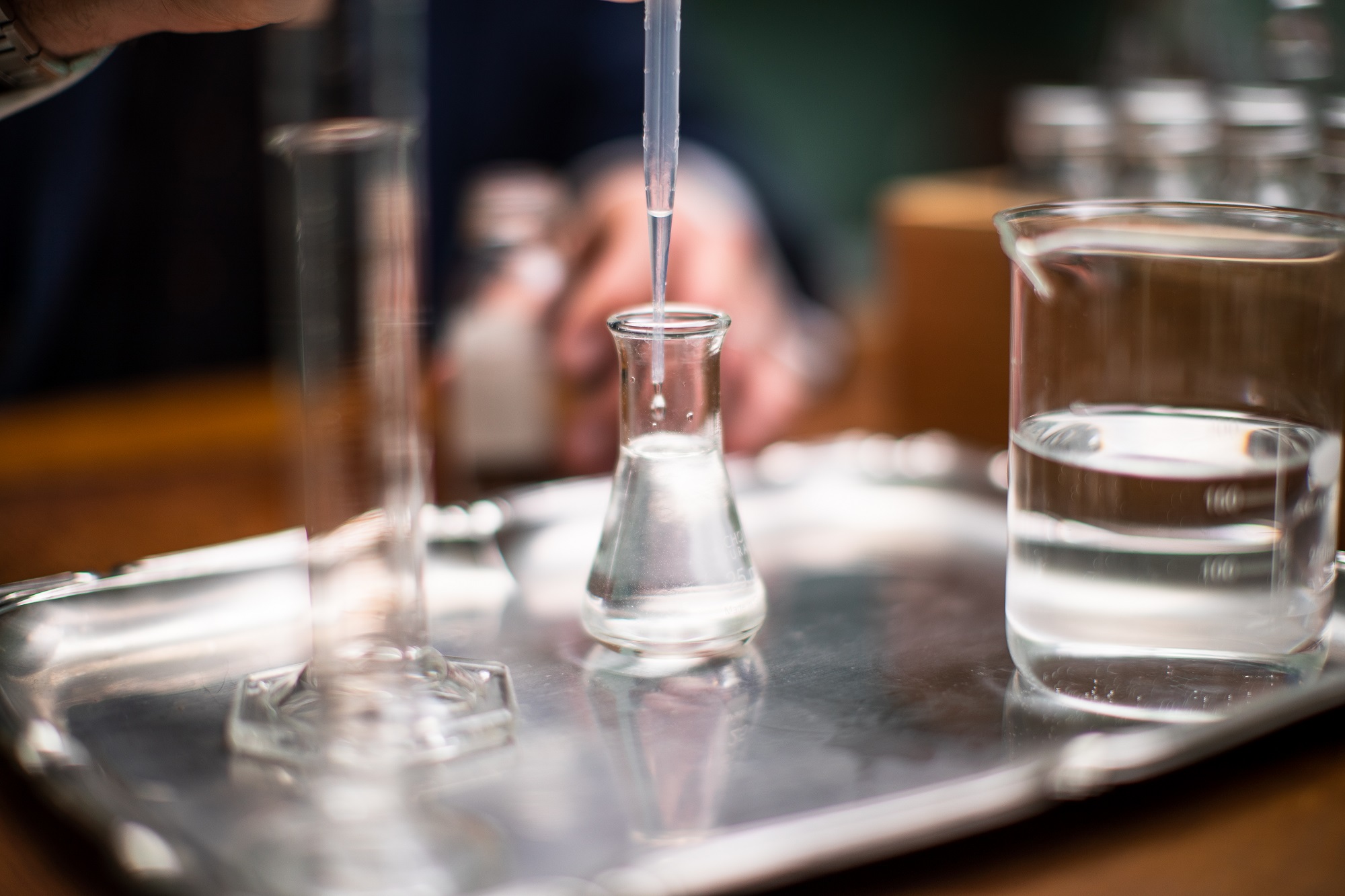
Can you tell us a bit about the distillation and production process?
Our approach is certainly unusual. Any visitor to the distillery usually comments that it looks more like a science lab than a traditional distillery, and they’re not wrong.
Firstly, as mentioned above, we use fresh botanicals. Using dried ingredients removes much of the nature of an ingredient, that which makes it so nuanced and unique, so we developed an approach which enables the use of fresh material which would otherwise be destroyed by the heat involved in traditional distillation.
For the distillation itself, it is our opinion that no two botanicals are identical. As such, simply putting them all in one pot fails to appreciate the individual qualities that each brings to the final product. We operate nine different variables for each ingredient: different pressure, temperatures, speeds and strengths of distillation to name a few, in order to optimise the flavour from each source. Technically, at this point we’re not actually distilling gin (which by definition is a juniper flavoured spirit). Rather, we are creating the individual notes which must later be composed into the final orchestral score.
That last step, blending, is an opportunity which arises from our approach. Rather than a finished ‘gin’ (which is simply diluted to bottle strength) coming from our stills, we are able to taste and analyse each individual distillate and blend them accordingly to achieve our intended flavour profile. It gives us a level of control well in advance of the traditional methods.
This may seem to some like an overly complex approach, but the quality it delivers cannot be ignored. We’ve been named three consecutive times as the most innovative distillery in the world, and have more gold medals for our liquid that I can keep track of now.
What are the main challenges and opportunities faced by the Gin industry in 2022?
I believe the greatest challenge to gin, commercially speaking, is gin. Rather, products which self-identify as gin, but fail to comply with the basic definition of being a juniper-led product. It is creating unnecessary confusion amongst consumers, and inevitably lowering the public’s impression of the quality levels which can be achieved by considerate and skilled distillers.
The opportunity, therefore, lies in the direction of quality - something we have focussed on since day one and continue to work on every day. Fewer flavour trends, and more emphasis on regionality and expression avoids the peaks and troughs of flavour trends and creates an established quality base similar to that seen in the old-world wine producing areas.
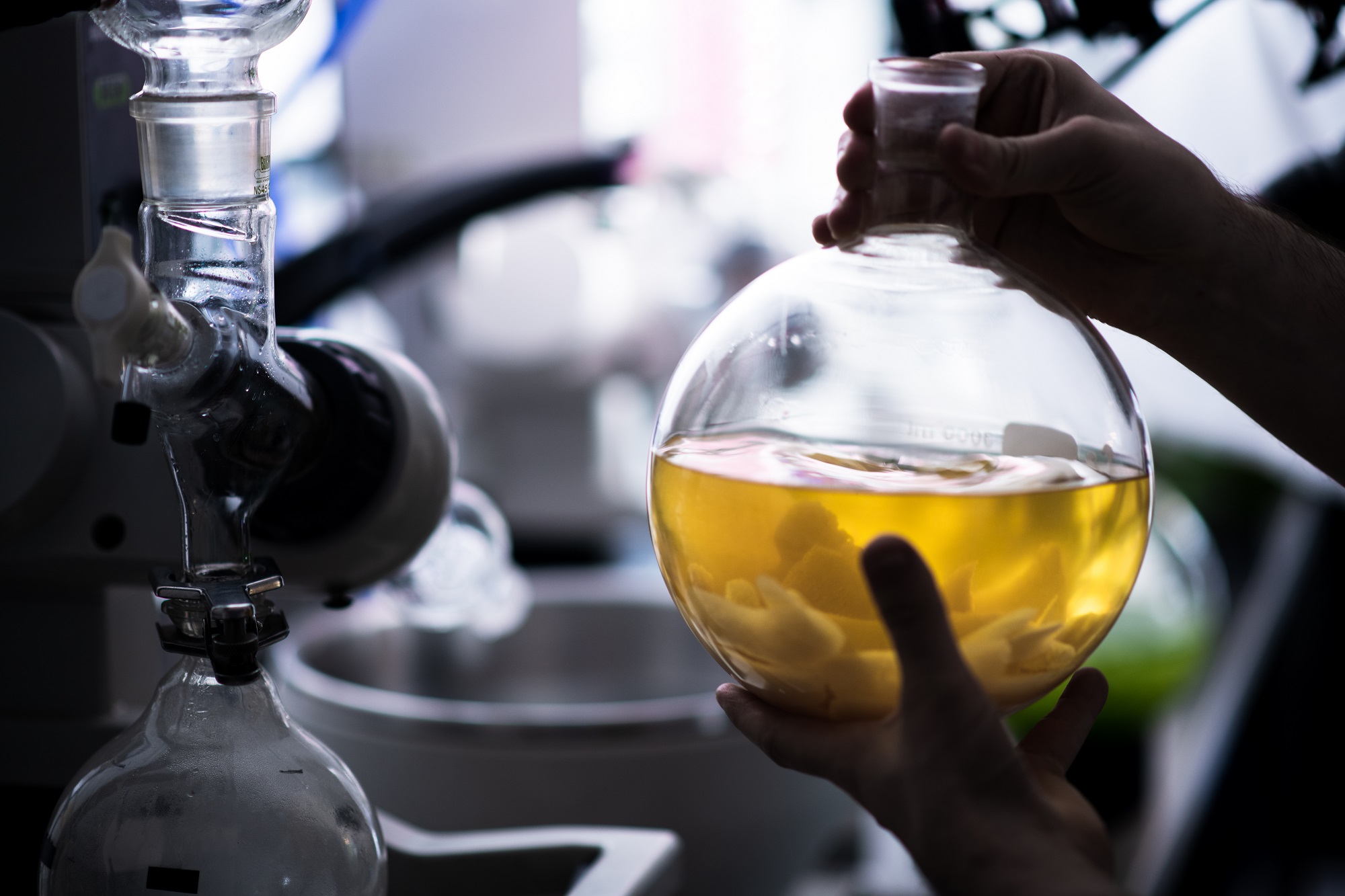
Currently studying for a PHD at Cambridge University, how does your academic research tie in with the work you do at the Cambridge Distillery?
My PhD is examining the chemistry of quality in wines and spirits. Whilst I acknowledge that much of perceived quality is derived from extrinsic factors (bottle design, price point, producer reputation etc.) it is clear that quality must ultimately reside in the glass. At this point I believe that the industry often reverts to ambiguous statements (‘minerality’ immediately springs to mind!) to communicate quality levels. My stance is that quality should be more than a faith-based concept: I’m attempting to derive correlations between physical and chemical attributes of both wines and spirits with their perceived level of quality.
It’s fairly clear how this ties in with my work: I am obsessed with quality, and will stop at nothing to find even the most incremental gain.
What is the story behind the Cambridge Distillery Watenshi Gin Batch 15?
Watenshi is a very special product. Rightly considered the best gin in the world, it is also arguably the most exclusive. It is made from the most elusive element of the distillation of each of the botanicals in our ‘Japanese Gin’ (the world’s first gin created from Japanese botanicals). There is a tiny (<0.5%) element of each distillation which would simply evaporate away were it not for our fractional condensation apparatus which collects this tiny volume (15ml per day) at a pressure less than half that at the summit of Mount Everest and at temperatures colder than the South Pole (-75c).
This volume which would usually be lost to the heavens was given the name ‘the angel’s share’ – our nod to the barrel evaporation during the maturation of whisky. We make Watenshi entirely from this incredibly pronounced yet almost impossibly delicate fraction, hence the name ‘Watenshi’, which translates as ‘the Japanese Angel’.
Batch 15 (along with all other batches) is a blend of just six 70cl bottles. We have to blend and bottle them in such small quantities as an inevitable consequence of the high-quality low-yielding process.
“This approach enables us to deliver gins which are not only excellent liquids, but also genuinely representative of the place from which they originate.”
Where do you source the botanicals used in your gins?
We have a hyper-local approach. There’s one gin (Curator’s Gin) made entirely from things grown in the Cambridge University Botanic Garden. For Anty Gin, the botanicals are sourced from the same ecosystem from which the ants are taken. Truffle Gin called for the best truffle we could possibly locate, which means we source from Alba in Piedmont (a place familiar to all the Barolo fans out there).
Our Seasonal Gins are grown in the meadow surrounding the distillery. This approach enables us to deliver gins which are not only excellent liquids, but also genuinely representative of the place from which they originate.







